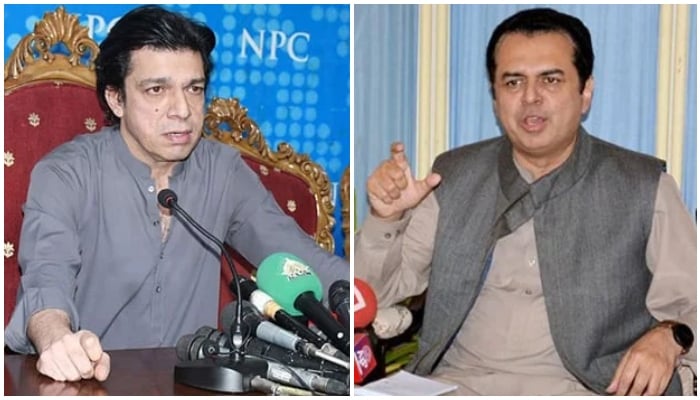Business
Dreams to despair
字号+ Author:Smart News Source:Sports 2025-01-11 01:55:17 I want to comment(0)
LIKE many developing nations, Pakistan’s economy relies heavily on its migrant workers — individuals who leave home with dreams of a better future, not just for themselves but for their families. In 2023, 860,000 Pakistanis ventured abroad for employment, becoming the lifeline of our economy through their remittances. The sweat and blood of these overseas workers flowed back $30 billion into Pakistan’s economy last year alone. Pakistan’s migrant population falls into three overlapping groups: regular economic migrants contributing critical remittances, irregular migrants seeking opportunities through informal channels, and detainees abroad — many held for immigration or labour violations. These groups reflect the vulnerabilities of Pakistan’s labour migration system and the need for reform. Today, 23,456 Pakistanis languish in foreign prisons, primarily in Saudi Arabia, the UAE, Iraq, and other countries. Over 7,800 of them await trial, while the rest serve sentences for infractions like overstaying visas, labour violations, or working without permits. Behind these numbers are human beings — individuals who lacked the legal awareness, language skills, and support to navigate unfamiliar justice systems, turning their dream of opportunity into a living nightmare. We owe our migrant workers more than praise; we owe them protection. The challenges that Pakistan’s migrants face — regular or irregular — are deeply rooted in Pakistan’s flawed labour migration system. The recruitment process, intended to ensure fair employment, remains a minefield of exploitation. While the country’s 2,157 licensed Overseas Employment Promoters operate out of only seven cities, the majority of rural migrants rely on unregulated sub-agents who often deceive them with false promises and illegal ‘azad visas’. Irregular migrants are most vulnerable to exploitation since they often lack formal protections and face harsher penalties when caught. This is not merely an administrative issue — it is a human rights crisis. Migrants are not just economic contributors; they are citizens whose dignity and safety the state is obligated to protect. Yet our fragmented system has failed to shield them. Weak enforcement of laws, limited pre-departure training, and poor oversight of sub-agents leave migrants unprepared and unsupported when they face foreign legal systems. The absence of a comprehensive consular protection policy adds to their plight. Diplomatic missions, constrained by limited resources and unclear guidelines, often fail to offer timely assistance. In the 2017 Asma Shafi case, the Lahore High Court directed the formulation of a ‘Uniform Consular Protection Policy’ to ensure legal aid, repatriation, and rehabilitation for detained Pakistanis. Seven years later, progress remains glacial. The Senate Standing Committee on Human Rights, in February 2024, issued a 90-day deadline for finalisation of the policy — a deadline that has now expired, marking a missed opportunity. To address these systemic gaps, the government must strengthen recruitment mechanisms by ensuring that sub-agents are regulated and by expanding access to licensed Overseas Employment Promoters in the rural areas. Mandatory pre-departure briefings should be implemented to prepare all migrants — regular and irregular — with knowledge of their rights, the risks they may face, and the systems they can turn to in times of crisis. At the same time, Pakistan’s diplomatic missions must be equipped with the resources and structured policies needed to respond effectively to the ne-eds of overseas workers. The formulation of prison tra-nsfer agreements with countries hosting large numbers of Pakistani detainees can allow these individuals to serve their sentences at home, closer to their families and support systems. For those facing the death penalty abroad, consular access and immediate legal representation must become a national priority. These are not bureaucratic formalities; they are matters of life and dignity. Pakistan’s migrant workers are our ambassadors abroad — heroes who sacrifice their comfort to support our nation. Whether they send remittances home, seek better lives through irregular means, or find themselves trapped in foreign legal systems, they are part of our collective responsibility. We owe them more than praise; we owe them protection. The future of Pakistan’s migrant workforce rests on our ability to act. The world observed International Migrants Day yesterday; let us commit to reforming systems, enforcing laws, and, above all, honouring their sacrifices with action.
1.This site adheres to industry standards, and any reposted articles will clearly indicate the author and source;
 Related Articles
Related Articles-
Australia drop Marsh, hand Webster debut for fifth India Test
2025-01-11 01:31
-
'Uraan Pakistan': PM Shehbaz links economic prosperity to 'political harmony'
2025-01-11 00:44
-
Pakistan, India exchange lists of nuclear sites, prisoners
2025-01-11 00:04
-
Aerial firing during New Year injures 29 in Karachi
2025-01-10 23:47
 User Reviews
User Reviews Recommended Reads
Recommended Reads Hot Information
Hot Information- صدرِ مملکت اور وزیراعظم نے 2025ء میں متحد اور خوشحال پاکستان کی امید کا اظہار کیا۔
- Prolonged road closures deepen Karachiites misery on day nine of MWM protests
- Man accused in Rs3bn tax fraud case granted bail against Rs100 surety bond
- Kurram warring tribes sign peace accord after days-long jirga
- وزیراعظم شہباز شریف نے اقتصادی ترقی کے لیے برآمدات پر مبنی ترقی اور سیاسی استحکام پر زور دیا۔
- President, PM express hope for united, prosperous Pakistan in 2025
- ‘Say no to aerial firing’: Aseefa urges revellers to celebrate New Year ‘responsibly’
- Kurram warring tribes sign peace accord after days-long jirga
- Australia drop Marsh, hand Webster debut for fifth India Test
 Abont US
Abont US
Follow our WhatasApp account to stay updated with the latest exciting content













